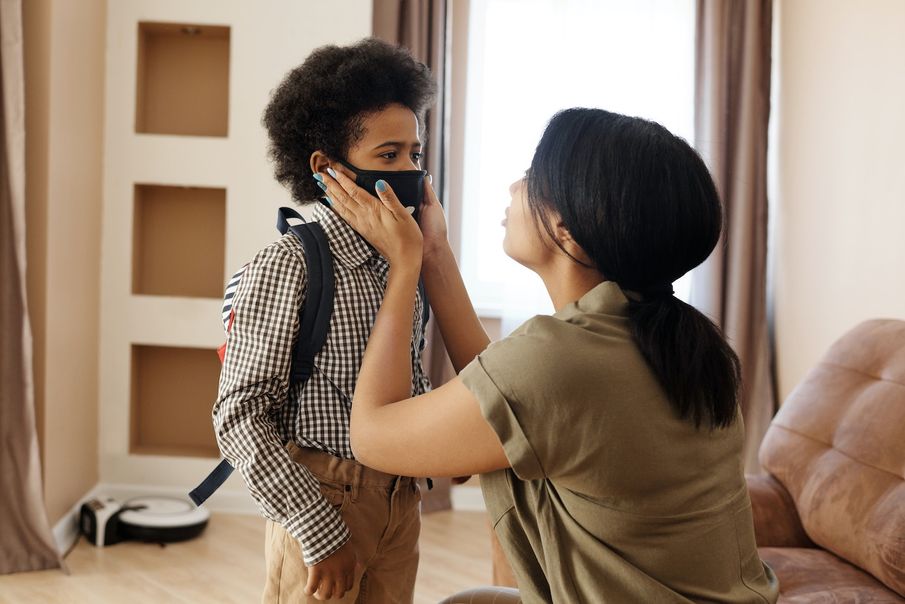Head teachers request more clarity on face covering rules before schools start in September
Edit: Following pressure from unions and schools, Boris Johnson has now changed advice regarding face coverings in schools and sixth-form colleges. Staff and pupils in areas that are having local lockdowns (such as Manchester and Birmingham) will now be required to wear face coverings when moving around buildings and in communal areas. In other parts of the country masks will not be obligatory, however school leaders will be able to ask staff and pupils to wear them if they believe it is "right in their particular circumstances". Masks will not be required in classrooms.
In Scotland, children aged 12 and above will be asked to wear face coverings in school corridors, communal areas and on school buses. First Minister Nicola Sturgeon has said she is acting in response to new guidance from the World Health Organization (WHO).
The rules for England however, are less clear. Current guidance, issued in early July, does not recommend face coverings at school, but head teachers want to know if they’re able to override this guidance if students or teachers want to wear them.
Geoff Barton from ASCL head teachers union says the guidance is “silent” on what schools are able to do if people want to wear coverings. The lack of information from the government comes after head teachers in England wrote a letter to Education Secretary Gavin Williamson, saying they felt they were working “in isolation” from the government and accusing them of not listening.
The argument from the government regarding face coverings is that as students will be in separate ‘bubbles’ there is no need for masks, warning that any misuse of face coverings could “inadvertently increase the risk of transmission”. A spokesman from Downing Street has also commented to say masks could get in the way of communication between students and teachers.
Another spokesperson has said there are “no plans” to change guidance on wearing face coverings at schools in England.

What the WHO says about face masks
Advice from the WHO is that non-medical face coverings should be worn where social distancing is not possible. When people talk, cough or sneeze, droplets are sprayed into the air and may fall on surfaces. If the person has coronavirus, this can lead to it spreading.
Cloth coverings can help to reduce the spread from those who are contagious but have no symptoms yet. In Singapore, scientists have suggested that the contagion risk of coronavirus is especially high 24-48 hours before an infected person is aware they have the disease.
Could face coverings have a detrimental effect?
New research from behavioural scientists at Warwick Business School has found that people feel comfortable sitting or standing closer to others while wearing a mask. It was also indicated that people would maintain a smaller distance from those wearing masks.
Scientists say this could make it harder to re-establish social distancing measures if they’re required to help control a potential second wave of cases. The findings are revealed in a new pre-print paper, Risk compensation during COVID-19: The impact of face mask usage on social distancing.
Face coverings - a reminder of best practice
- Ensure you are wearing it properly and that it’s covering your nose and mouth.
- Do not pull it down to speak to others.
- Do not share your mask with others.
- Do not use it if it’s damp or damaged.
- Wash your hands thoroughly before and after putting your face covering on.
- Where possible, continue to maintain social distancing.
For more information on when to wear face coverings and who’s exempt, see the Government’s advice.
Looking to buy a face mask that gives back? Here are our favourite charity face masks on the market. If wearing face coverings makes you anxious, you’re not alone. See our advice for coping with face mask anxiety.


Comments